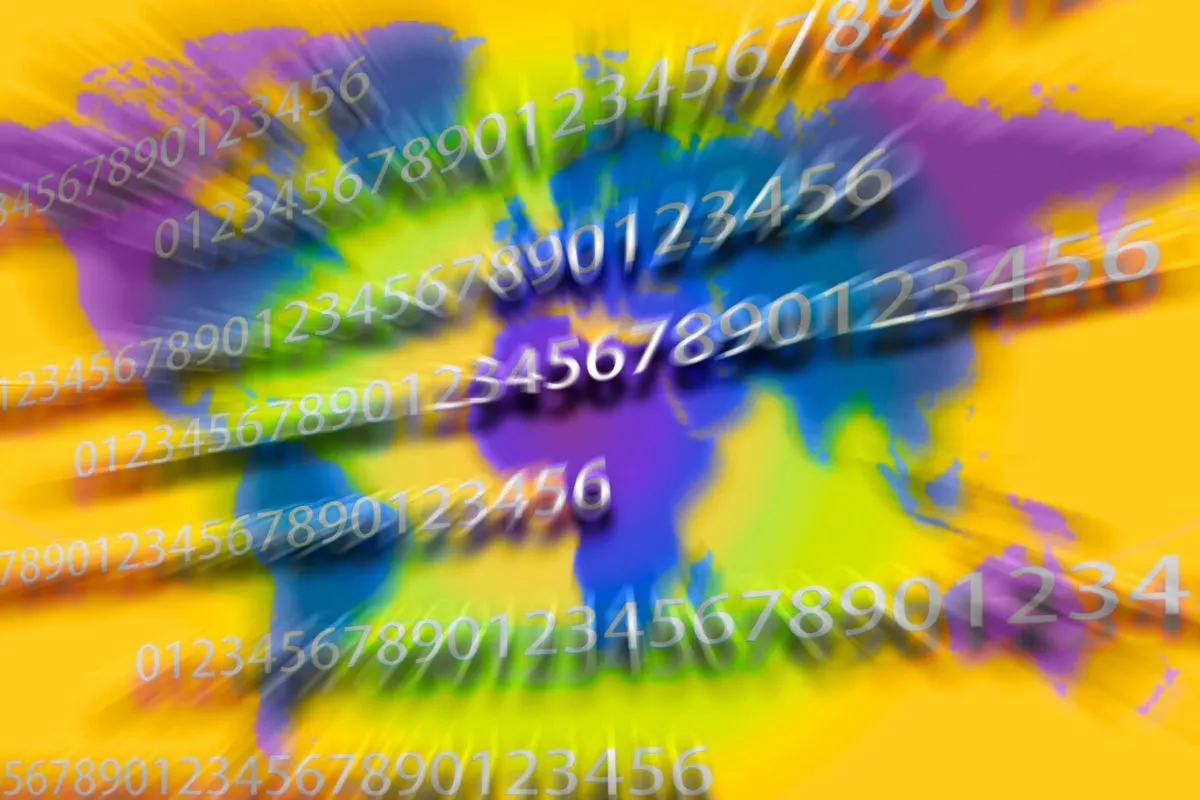Hypercomplex Numbers in Quantum Mechanics offer a novel approach to tackling quantum phenomena. These numbers extend traditional complex numbers, providing richer algebraic structures.
Their application in quantum mechanics allows for a deeper understanding of quantum states and operators. Let’s explore the role and utility of hypercomplex numbers in quantum mechanics.
Introduction to Hypercomplex Numbers
Hypercomplex numbers are generalizations of complex numbers. This includes quaternions, octonions, and others. These numbers extend the algebraic properties of complex numbers into higher dimensions.
These numbers form richer algebraic structures. They can describe phenomena beyond the scope of standard complex numbers. For example, quaternions are used in three-dimensional rotations in computer graphics and robotics.
In mathematics and physics, they play roles in vector spaces. These structures help in understanding quantum systems. Hypercomplex numbers also contribute to the study of relativity and string theory, providing deeper insights into the fabric of the universe.
The Need for Hypercomplex Numbers in Quantum Mechanics
Quantum mechanics often requires handling multi-dimensional spaces. Traditional complex numbers may fall short.
Hypercomplex numbers in quantum mechanics offer solutions for complex quantum states. They provide algebraic structures needed for these spaces.
This aids in understanding and manipulation of quantum operators. Such applications are crucial in advanced quantum theory.
Types of Hypercomplex Numbers
Several types of hypercomplex numbers are used in quantum mechanics. Key examples include quaternions and octonions.
- Quaternions: Useful in describing rotations in three and four dimensions.
- Octonions: Extend beyond quaternions, allowing for even more complex transformations.
- Sedenions: Further extensions with specific applications in advanced theories.
Applications in Quantum Mechanics
Hypercomplex numbers in quantum mechanics are not just theoretical. They have practical applications that enhance our understanding.
Quantum States Representation
Quantum states can be described using hypercomplex numbers. This allows for more precise state representation.
Such representations can handle entanglement and superposition better. These are critical phenomena in quantum mechanics.
Using hypercomplex numbers thus improves accuracy. This is key in quantum computing and information processing.
Quantum Operators and Transformations
Operators in quantum mechanics perform critical functions. Hypercomplex numbers in quantum mechanics ensure these functions handle complex transformations.
These numbers help model quantum gates used in quantum computing. Gates like Hadamard, Pauli-X, Y, Z can be efficiently represented.
This representation aids in error correction and algorithm development. Hypercomplex numbers thus solidify the foundation of quantum computing.
Hypercombinatorial Numbers in Quantum Mechanics
Essence of Hypercombinatorial Numbers
Hypercombinatorial numbers offer another layer of complexity. They enhance the algebraic capacity beyond hypercomplex numbers.
This is important for certain quantum calculations. These require advanced algebraic manipulation.
Hypercombinatorial numbers thus find their place in specific quantum phenomena. They help extend current quantum models.
Advantages in Quantum Systems
Use of hypercombinatorial numbers offers several benefits. They provide greater flexibility in quantum system modeling.
- Enhanced error control in quantum computations.
- Better handling of multi-particle interactions.
- Improved algorithms for quantum cryptography.
Such advantages make hypercombinatorial numbers indispensable. They are key in advanced quantum research and development.
Algebraic Structures and Quantum Mechanics
Understanding algebra is fundamental in Hypercomplex Numbers in Quantum Mechanics. Algebraic structures provide a backbone for theoretical models.
Role of Algebra in Quantum Mechanics
Algebra helps in modeling quantum systems. It allows for precise calculations and predictions.
Hypercomplex numbers in quantum mechanics utilize advanced algebra. They expand the algebraic toolkit available to scientists.
This aids in more accurate modeling and simulation. Complex quantum states and interactions are better understood.
Vector Spaces and Their Importance
Vector spaces form another important element. They provide the framework within which quantum states exist.
Hypercomplex numbers in quantum mechanics align well with vector spaces. This combination is powerful for quantum calculations.
Vector spaces enhanced with hypercomplex numbers enrich the field. They allow for innovative solutions to quantum challenges.
Quantum Systems and Their Complexity
Challenges in Quantum Systems
Quantum systems are inherently complex. Traditional mathematical tools may hit a limitation.
This is where hypercomplex numbers in quantum mechanics shine. They provide the needed complexity to tackle these systems.
Such complexity is essential for accurate quantum modeling. This includes areas like quantum teleportation and superposition.
Future of Quantum Mechanics with Hypercomplex Numbers
The future of hypercomplex numbers in quantum mechanics looks promising. They have potential in numerous quantum applications.
- Quantum computing advancements.
- Improved quantum communication protocols.
- Enhanced stability in quantum cryptography.
These applications show the expanding horizon of quantum mechanics. Hypercomplex numbers will continue to play a crucial role.
Integration of Hypercomplex Numbers in Education
Educational Importance
It is essential to integrate hypercomplex numbers in education. This helps future scientists and engineers.
Hypercomplex numbers in quantum mechanics should be taught at advanced levels. This ensures students are well-equipped for future challenges.
Incorporating these numbers in curriculums provides foundational knowledge. Such education will drive future innovations.
Learning Resources
Various resources are available for learning hypercomplex numbers. These include textbooks, online courses, and research papers.
- Advanced Algebra and Hypercomplex Numbers by Smith and Grey.
- Quantum Algebra Online Course by Quantum University.
- Research papers in the Journal of Quantum Mechanics.
These resources provide in-depth understanding. They are essential for anyone interested in quantum mechanics.
Expanding Horizons in Quantum Mechanics
Summarizing the importance of hypercomplex numbers in quantum mechanics. They offer advanced algebraic tools and innovative solutions.
Their applications in quantum states, operators, and systems are extensive. Such integration paves the way for future advancements in quantum theory.
Engaging in further research and learning is encouraged. Hypercomplex numbers in quantum mechanics represent the frontier of scientific exploration.
Frequently Asked Questions
What are hypercomplex numbers?
Hypercomplex numbers are extensions of complex numbers, including quaternions and octonions. They offer richer algebraic structures.
Why are hypercomplex numbers important in quantum mechanics?
They provide advanced mathematical tools that help in modeling and understanding complex quantum systems.
How do hypercombinatorial numbers differ from hypercomplex numbers?
Hypercombinatorial numbers are a further extension of hypercomplex numbers, offering even greater algebraic capacity.
What is the role of algebra in quantum mechanics?
Algebra helps in precise modeling and prediction of quantum states and interactions, essential for accurate quantum mechanics calculations.
What resources are available for learning about hypercomplex numbers?
Resources include advanced textbooks, online courses, and research papers on quantum mechanics and algebra.




